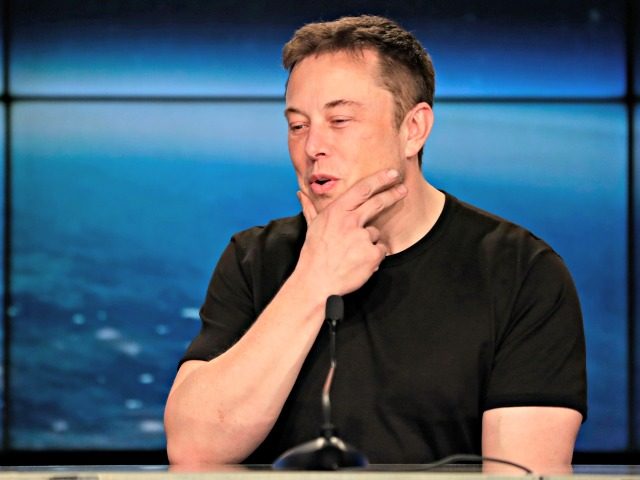Following Elon Musk’s announcement of Tesla securing funding for taking the embattled electric vehicle company private, the erratic billionaire found himself the subject of lawsuits, an SEC inquiry, and an abundance of ridicule.
On Tuesday, Musk announced Tesla had secured financing to take the company private at $420 per share, boosting the share price 11 percent before falling nearly two percent to $372.38 Wednesday. “Am considering taking Tesla private at $420. Funding secured,” Musk tweeted.
There was just one problem. Musk not only failed to divulge which investor(s) would be ponying up the capital for such a move, but virtually every major investor was said to have not committed any money. Axios’s Dan Primack noted that leading investment funds, such as Soft Bank and KKR, were involved in an agreement to take Tesla off the public market.
As we reported this morning in Pro Rata: Those not involved in Tesla financing include Apple, SoftBank, Uber, TPG, Silver Lake, Mubadala, KKR and basically every large Wall St bank.
— Dan Primack (@danprimack) August 8, 2018
The following day, six of nine Tesla board members claimed that Musk raised the prospect of taking the company private last week, which they say included discussions about how operating as a private company could best serve its long-term interests. Board members may request that Musk “recuse himself,” from the process of putting together a roadmap to take Tesla private, while suggesting the billionaire hire “his own separate set of advisors.”
A small number of independent directors is mulling plans to create a “special committee” to evaluate strategies to attract possible investors. As previously reported, six board members announced Wednesday that Musk, who serves as both Tesla’s Chairman and CEO, approached them last week about taking the company private.
In an opinion editorial published Wednesday, Breitbart News’s Economics and Finance editor John Carney threw cold water on Musk’s proposal to take the company private, suggesting the move could face major legal hurdles. “Similar special investment funds in the past have been limited to qualified investors, the wealthy clients of the investment banks setting them up. Musk seems to think he can offer shares in Tesla Holding to all of the holders of Tesla’s public shares. No one has ever tried that before — and it is most likely in breach of securities laws,” Carney writes.
On Thursday, Bloomberg Business reported that SEC investigators in San Francisco enlarged an already ongoing probe into Tesla following Musk’s tweets about taking his company private. Not only are investigators working to determine if the erratic billionaire’s tweets about securing funding “truthful,” but they’re monitoring “public pronouncements,” and Tesla’s “manufacturing goals and sales targets.”
In two separate complaints filed in a federal in San Francisco Friday, plaintiffs William Chamberlain and Kalman Isaacs accused Musk of boosting Tesla’s stock price by announcing the funding had been secured to take the company private at $420 per share. Isaacs’ lawsuit contends the Tesla CEO purposely sent the car company’s share price upwards to hurt short-sellers, in what he describes as a “nuclear attack” meant to “completely decimate” investors shorting the stock. “It is clear that Defendant Musk Tweeted materially false and misleading information regarding the Going Private Transaction to exact personal revenge and ‘squeeze-out’ the short-sellers who had purportedly been badgering him for months,” the lawsuit reads.
To top it all off, Musk may find himself in hot water over his Twitter habits in general, as Breitbart News’s Lucas Nolan reported this week:
Twitter has been a legitimate channel for investor communication since 2013 when the Securities and Exchange Commission (SEC) stated that the social media platform as a valid disclosure method as long as companies warned investors prior to posting on the platform.”
Tesla agreed to these terms, at one point instructing investors in November 2013 to “follow Elon Musk’s and Tesla’s Twitter accounts” for more information. But now, it appears that Musk’s blocking of users that bother him on the platform may undermine the company’s current situation with the SEC. If Twiter is seen as a disclosure method, tweets on the platform are subject to disclosure requirements defined in an SEC rule called Regulation FD. According to the rule, company communication methods must be “reasonably designed to provide broad, non-exclusionary distribution of the information to the public.” Blocking users on Twitter means that they are being excluded from the information distribution.
Former SEC deputy chief of staff Michael Liftik suggests that Musk could run afoul of the agency if he prevents individuals from obtaining information about Tesla by blocking them on Twitter. “The point is to just make sure everyone knows. But when you start blocking, that kind of does change the equation, because that kind of becomes a selective disclosure if you’re not letting anyone who wants to follow you, follow you. I do think that creates problems,” Liftik said.

COMMENTS
Please let us know if you're having issues with commenting.